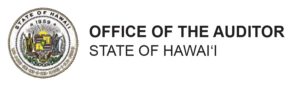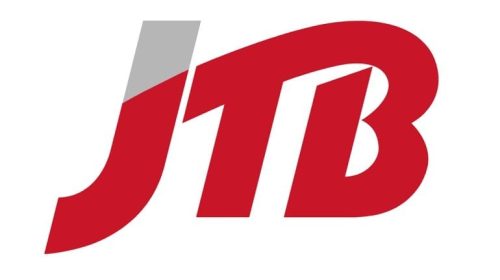Caught and official: Hawaii Tourism Authority’s incompetent
Leslie H. Kondo, Hawaii State Auditor said, we express our appreciation to the officials and staff of the Hawai‘i Tourism Authority and other individuals whom we contacted during the course of our audit, for their cooperation and assistance.
This publisher Juergen Thomas Steinmetz said: ” eTurboNews started in 1999, about the same time the Hawaii Tourism Authority (HTA) started. Since 1999 I tried to reach out to the leadership of the Hawaii Tourism Authority to share our experience in tourism, provide access to our global reach – all free of charge.
Frustrated with HTA taking many of my ideas and ignoring me, I started the unofficial Hawaii Tourism Association to make HTA understand the importance of additional international markets for Hawaii )including China, Brazil, Australia, New Zealand, Singapore and the Gulf Region.
When we started the International Coalition of Tourism Partners and invited Hawaii Tourism Authority to become a founding member without any expense there was never a response.
In the meantime, more than 100 tourism boards joined ICTP, except HTA.
“We started LGBT Hawaii , an organization with a goal to reach out to the LGBT community in Hawaii and to bring tourism stakeholders together to reach out to this important audience. Our first meeting with the Hawaii Hospitality community brought more than 130 stakeholders together. After this HTA talked bad about it, and future outreach was made impossible, even though I kept the initiative active and many visitors and locals are relying on our information.
“All of this was done without HTA spending a dime on us, but also unfortunately without HTA giving us the time of the day. We had one meeting every 5 years.
“HTA never responded to emails and phone calls, deliberately ignoring eTurboNews even though eTN published all their content and releases free of charge and for almost two decades.
“At one point eTurboNews had a contract to provide free promotional outreach for the HTA marketing conference in return for a stand. For three months eTN tried to communicate with HTA and promte the event – all without a single response.
“To round it up the Hawaii Tourism Authority took many of our ideas and input and partnered with others spending big money to implement what we had proposed behind the scene. We will report about details in an upcoming series of articles.
” HTA badmouthed me personally and all my Hawaii based companies, media and initiatives in the industry to a point that every attempt to help Hawaii Tourism became an impossible task.
“As I said many times, tourism is everyone’s business. No matter if you are employed directly or indirectly in tourism, this industry is your business when you reside in the State of Hawaii. I said many times the success of the industry cannot be always attributed to activities under the leadership of the Hawaii Tourism Authority. In most cases there are other reasons, and being a global player in this industry I can see very clearly the game played, and the incompetency behind it.
“I am pleased Leslie H. Kondo, Hawaii State Auditor is now getting a taste of the modus operandi by the Hawaii Tourism Authority.”
Leslie H. Kondo, Hawaii State Auditor said Our audit of the Hawai‘i Tourism Authority was conducted pursuant to Section 23-13, Hawai‘i Revised Statutes, which requires the Auditor to conduct a management and financial audit of all contracts or agreements in excess of $15 million awarded by the Authority at least every five years.
Leslie H. Kondo, Hawaii State Auditor writes:
We assessed the Hawai‘i Tourism Authority’s (HTA) oversight of its two contracts valued at over $15 million: one with AEG Management HCC, LLC (AEG) to manage, operate, and market the Hawai‘i Convention Center, and the second with the Hawai‘i Visitors and Convention Bureau (HVCB) to market Hawai‘i in the United States and Canada. We also examined HTA’s procurement of service contracts and its compliance with the statutory limit on its administrative expenses. In all three areas, we found that HTA’s autonomy, which includes permanent funding and an exemption from the State Procurement Code, has facilitated lax oversight, deficient internal controls, and, ultimately, less accountability.
We found that HTA reimbursed millions of dollars to contractors without receipts and other required documentation; reimbursed costs, such as first-class airfare, luxury hotel accommodations, and other extravagant expenses, that were expressly prohibited by contract; and consistently failed to enforce contract terms that are intended to protect the State.
HTA has disregarded its own procurement policies and procedures, awarding sole source contracts based on questionable justifications, paying contractors without existing contracts, and voluntarily waiving ownership of intellectual property that the State paid to develop. In response to a statutory change reducing the amount of the Tourism Special Fund that can be used for administrative expenses, HTA shifted some expenses to other budget lines and to HTA programs, but did not significantly reduce its costs.
Why Did These Problems Occur?
We found that HTA’s semi-autonomy and its exemption from the State Procurement Code has led the Authority to be less accountable and less prepared, with operations that lack the rigor necessary to adequately manage and oversee its contracts, to ensure that procurement is conducted fairly, appropriately, and in the State’s best interest, and to address the statutory reduction of the limit on administrative expenses. Also, as the Authority’s staffing has evolved over the years, we found that its policies and procedures have become outdated, no longer reflecting the reality of its current organizational structure.
Why Do These Problems Matter?
With tourism being one of the industries responsible for the State’s economic growth and standard of living, it is vital that HTA be best able to accomplish this critical mission while remaining accountable and ensuring appropriate stewardship of public funds. Without strong oversight of its contracts, HTA may be allowing its contractors to underperform and overspend. In fact, in the case of AEG’s contract to transition the management and operation of the Hawai‘i Convention Center, we found concrete instances in which HTA approved improper, extravagant expenses disallowed by the terms of that contract. Our audit findings suggest that this scenario is likely not an isolated one.
SINCE IT BEGAN OPERATIONS in 1999, the Hawai‘i Tourism Authority (HTA or the Authority) has been responsible for creating a vision and a long-range strategic plan for tourism in Hawai‘i, and is charged with promoting, marketing, and developing the Islands’ tourism industry. It’s a vital mission, given that tourism is one of the industries most responsible for the State’s economic growth and standard of living. Though emerging industries, such as technology, film, and others, show promise for the future,
Hawai‘i’s economy will depend heavily on visitor-generated activity for years to come. In 2017, Hawai‘i’s tourism industry experienced its sixth consecutive year of record visitor spending ($16.78 billion), visitor arrivals (9.38 million), and tax revenue ($1.96 billion), according to preliminary year-end statistics released by HTA in January.
Because the visitor industry is so critical to the State’s economy, the Legislature has given HTA great freedom in how it operates: HTA is exempt from the administrative supervision and oversight that are required of other boards and commissions, allowing HTA to operate as a semi-autonomous State agency; HTA can provide its chief executive officer with a compensation package of more than $440,000, which is more than 2-1/2 times the governor’s salary; HTA has a permanent source of funding, receiving through statutory mandate more than $108 million annually from the Transient Accommodation Tax (TAT); and it is exempt from the State Procurement Code and other requirements for competitive bidding, giving HTA greater leeway in contracting for goods and services. However, HTA is a State entity and, as such, must be accountable for its performance, including its use of public money.
As a check against the semi-autonomy that HTA is afforded, the Legislature has directed the Office of the Auditor to conduct an audit of HTA, including the contracts valued over $15 million, at least every five years.
We assessed HTA’s oversight of two contracts valued at more than $15 million (collectively the major contracts): one with AEG Management HCC, LLC (AEG) to manage, operate, and market the Hawai‘i Convention Center; and the second with Hawai‘i Visitors and Convention Bureau (HVCB) to market Hawai‘i in the United States and Canada.
We also examined HTA’s procurement of service contracts and its compliance with the statutory limit on HTA’s administrative expenses.
In all three areas, we found that HTA’s autonomy has resulted in lax oversight, deficient internal controls and, ultimately, less accountability.
HTA has consistently failed to enforce contract terms that require HTA’s consent to subcontract and others that protect against wasteful spending.
HTA has disregarded its own procurement procedures, awarding sole source contracts based on questionable justifications, voluntarily waiving ownership of intellectual property, and extending contracts without first evaluating contractor performance. HTA has complied with a statutory reduction of the limit on its administrative expenses by shifting expenses to HTA programs and other budget lines, rather than reducing costs.
We report those and other related findings herein. It is beyond the scope of our audit to examine every procurement, contract, and payment to assess whether the issues we found are systemic or outliers. However, we did find actual financial harm caused by HTA’s lax approach to enforcing contractual requirements. And the contracts and other information we reviewed during this audit suggest that these situations may not be isolated.
Overall, we found that HTA’s semi-autonomy and its exemption from the State Procurement Code has led the Authority to be less accountable and less prepared, with operations lacking the rigor necessary to oversee its contracts and to ensure that its own policies and procedures are followed. We recommend that both HTA and the Legislature reexamine these issues to ensure that the Authority is best able to promote
Hawai‘i’s tourism industry going forward, while remaining accountable and ensuring appropriate stewardship of public funds.
eTurboNews and HawaiiNews Online will continue to analyze the report in the days to come.




